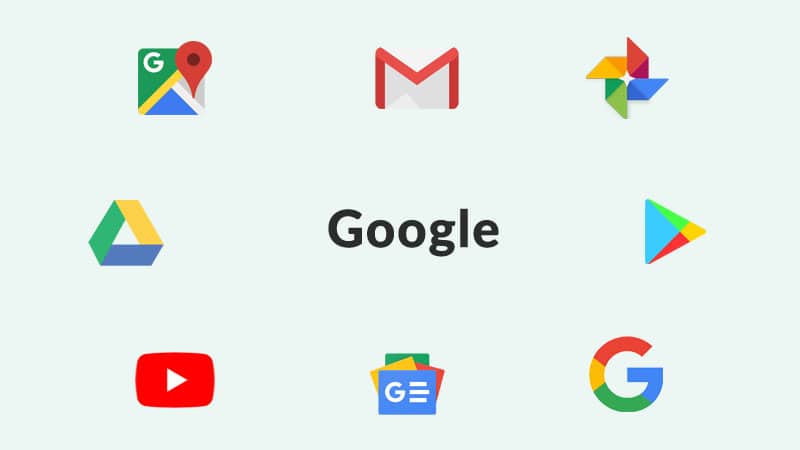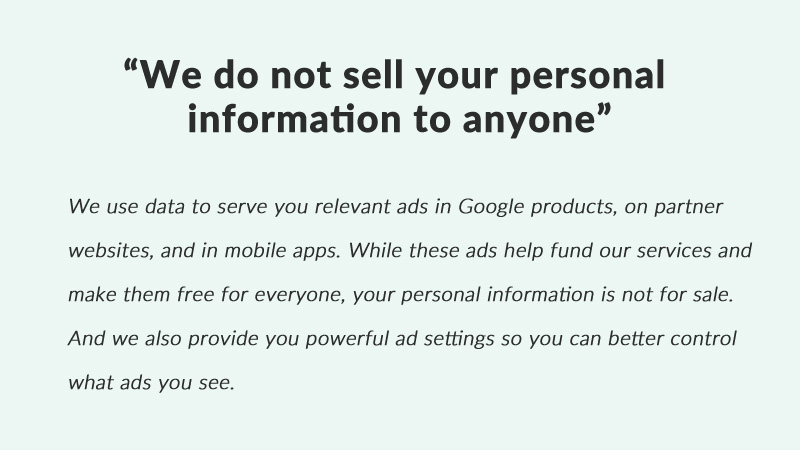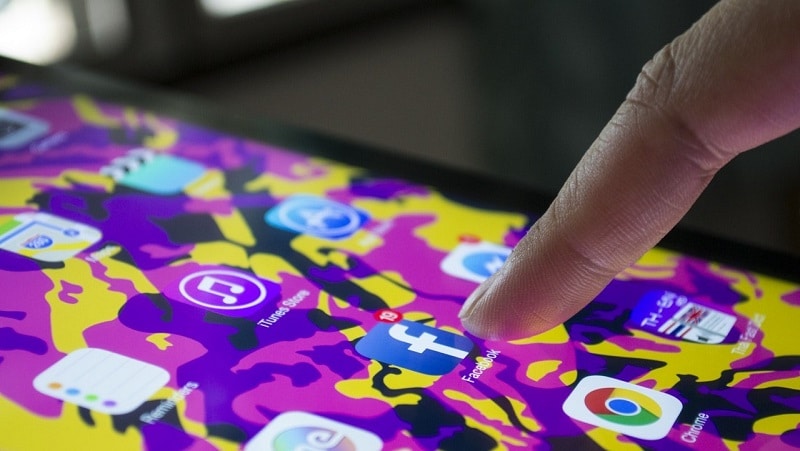There is an old saying in tech world – there ain’t no such thing as a free lunch.
This roughly translate to one simple fact, If a product or service is offered for free, understand that you or your personal data is the actual cost tradeoff.
I am not saying that it’s a bad thing, unless you’re a total privacy freak, but we need to take an account of what the companies are giving back to you for collecting and mining your personal data.
Are they giving enough product and services to make your life better?
Or are you a slave of the product that you’re using by contributing massive advertising revenue to companies like Google and Facebook?
That’s what I’m going to dig in this article.
The product and services offered by the 5 major tech giants that is Google, Facebook, Amazon, Apple and Microsoft are analysed for the actual impact they have on our life against the personal data we are giving away.
Let’s dive right into it.
Google is most probably the largest tech giant that we use on a daily basis.
They have a number of products offering a variety of services like for sending mail (Gmail), browsing the web (Chrome), searching a query( Google Search), giving directions to your destination (Maps), watching your favourite videos (YouTube), operating your smartphone (Android) and so on.

It is safe to assume that Google knows a lot about us, our habits and our interest than our friends know about us. Such is their ability to mine and assume our behavioural pattern.
What Google knows about us?
As their main source of revenue is advertisement, they collect a huge chunk of our data.
They know our name, email address, telephone number, credit card information (if we enter it), details on how we use Google’s services, how we interact with other websites that use AdWords and other Google technologies, our devices, search queries—the list goes on and on.
How Google collect our data?
Google Search, Chrome, YouTube, Maps, Android, Play Store and many other Google services.
How Google benefit from our data
Google use our data predominantly for showing us targeted and personalised advertisements based on our interaction with Google services.
The ads we see on YouTube or Google Search are tailored to each users behaviour and shown after analysing our search history and historical data.

What Google says about the use of user data.[/caption]
Whenever we search for a product in Google or watch an informative video in YouTube, Google understand this information and show us ads related to these queries.
The huge data they have about us make them easy to study and classify us.
Google also use our data to improve their machine learning capabilities as the machine learning algorithms require large datasets to yield impressive results.
The superior performance of the camera in Google’s Pixel smartphone is largely because the camera app has learned to perfect image processing after analysing millions of images stored in Google Photos.
What Google give back to us?
So Google collect a lot of data from us but in return, they give back plenty of product and services to us.
Apart from their major source of data mentioned above, they also have products like Google Assistant, Google Photos, Google Drive, Google Pay and many more that makes our life a lot easier.
In conclusion, Google as a company collects the most amount of data and knows everything we do on their platforms but they are also the one providing some great product for us.
A win-win situation?
I think so.
How to know what Google knows about me?
You can see and download all the information that Google knows about you from the following links.
Don’t be surprised seeing all your past!
1.https://myactivity.google.com/myactivity?hl=en
2.https://www.google.com/maps/timeline?pb
3.https://www.google.com/takeout/
The second largest data hungry company in the world is Facebook.
This social media giant started by Mark Zuckerberg has went on to become the largest social media network in the world.

And with the acquisition of Instagram and Whatsapp, they solidified their presence as the numero uno social media company for a long term.
What Facebook knows about us?
Facebook is an advertisers heaven.
This is because they collect plenty of super useful information about an individual at one place. You will be astonished knowing the information Facebook collects about you.
Let me break it down for you.
Facebook know the basic information about you like your age, date of birth, marital status, education, job etc and they also know about your friends, what information you provide about them, what they say about you, what other sites you visit (if they include a Facebook “like” button or the Facebook ‘Pixel’ code, which many websites do), what you bought, what device you used to access Facebook, and much more.
Facebook’s terms and service policy states the following,
We collect the content and other information you provide when you use our Services, including when you sign up for an account, create or share, and message or communicate with others. This can include information in or about the content you provide, such as the location of a photo or the date a file was created. We also collect information about how you use our Services, such as the types of content you view or engage with or the frequency and duration of your activities.
In a nutshell, Facebook collects all the data we provide to them including our chat history, contact details, photos and videos we upload, pages we like, groups we are part of and they are not just stopping there, they collect information outside Facebook, Instagram and WhatsApp making use of Facebook Pixel, Facebook Login and Facebook Like button.
How Facebook collect our data?
Their own platforms which are Facebook, Instagram and WhatsApp. Websites that use Facebook Pixel, Facebook Login and Facebook Like button also helps them to know more about us.
How Facebook benefit from our data?
Facebook is an ad dependent company and they are generating massive advertisement revenue year-on-year from their platforms.
If you’re an advertiser, the best place for you to advertise is Facebook.
You can perfectly target a large audience based on your business interest in Facebook, Instagram and soon on WhatsApp.
This is because in Facebook, thanks to their large availability of super useful data about their user, an advertiser can exactly target the audience he/his business wants. Personalisation, reach and impact of an ad shown in Facebook is way higher.
Facebook has also rolled out some features specific to businesses as well to make use of their large audience base.
What Facebook gives back to us?
Unlike Google, Facebook doesn’t have too many products that serve us.
Mainly Facebook and its network of social media websites give us an opportunity to stay connected with our friends and family in the virtual world.
They give us a free platform to share our moments, ideas and information with the world.
Recently Facebook had admitted to a data breach where 90 million Facebook users’ information were passed on to political ad targeting firm Cambridge Analytica without their consent.
All these begs to ask the question, is Facebook really necessary for us?
Aren’t we giving away too much data to a social network?
Yes, There are lots of positives for these platforms but is it enough for the data they collect and the privacy they breach?
My personal answer is a big fat no.
How to know what Facebook knows about me?
https://www.facebook.com/your_information/
Apple, Microsoft and Amazon
Apple’s major source of revenue is the sales of its hardware and the app sales in App Store—not advertising.
As privacy is one of the top priority of Apple, they are hell bent on not selling your data to advertisers.
The iPhone, Mac and other related products in Apple’s ecosystem are hence a better choice for a privacy centric person.
Apple does say, however, that it will collect certain information such as our name, contacts, and songs in your music library, and send them to Apple servers using encrypted protocols.—including our location, if that service is turned on.
Apple Music also links your preferences to an anonymous ID, and the News app uses your reading preferences to supply ads within the app.
Apple has information about you which is mostly about the content you’re consuming via iTunes, App Store, data about phone servicing, data pertaining to tickets raised by you.
Apple doesn’t store any messages, geo-locations, ads like Google and Facebook.
Microsoft, the operating system and cloud service giant collects the name, contact data, credentials, demographic data, payment data, and more.
As they are not collecting enough data just because not many people are using their products, It just doesn’t sell ads against it.
There’s also an additional layer of information that Microsoft samples, because it is an OS.
Your typed and handwritten words are collected to provide you a personalized user dictionary, help you type and write on your device with better character recognition, and provide you with text suggestions as you type or write.
Be aware, Microsoft can collect a lot of information if you are a Windows user.
Amazon, the E-Commerce giant is another tech conglomerate that collect a lot of our information.
They know our spending pattern, our favourite music and many other information especially if we use a prodcut like the Amazon voice assistant, Alexa.
These informations are then used by Amazon to analyze and target personalised ads.
No escape from that, I’m telling you.
Conclusion
Big tech companies give us valuable services and I have no doubt about it.
But they also collect our valuable personal data.
We do not always notice or measure this, but they exist in the background. Protecting our privacy and personal data will prevent fraud, data breaches and more in the future.
These services may not cost us a dime, but they’re not free.
The only sure way to avoid this is to surf anonymously, never buy a smartphone, and never take advantage of a free Web service that you have to log into.
Not possible, isn’t it?
All I can say is, be mindful of what information you share with companies, especially on the internet.
Weigh-in each company based on the data they collect and the services they give back. If the weight is too much lopsided, its time to make a bold decision.
References:
- https://www.pcworld.com/article/2986988/privacy/the-price-of-free-how-apple-facebook-microsoft-and-google-sell-you-to-advertisers.html
- https://www.theguardian.com/commentisfree/2018/mar/28/all-the-data-facebook-google-has-on-you-privacy
- https://hackernoon.com/apples-best-product-is-privacy-not-iphone-9919f5fc6fb7
- https://www.theladders.com/career-advice/this-is-what-facebook-amazon-apple-netflix-and-google-know-about-you
- https://www.usatoday.com/story/tech/talkingtech/2018/04/17/apple-make-simpler-download-your-privacy-data-year/521786002/
- https://www.itpro.co.uk/general-data-protection-regulation-gdpr/31330/how-to-reclaim-your-data-from-google-facebook
